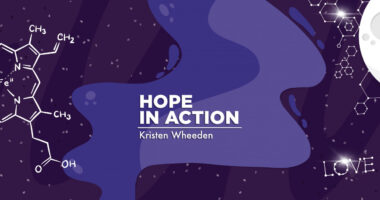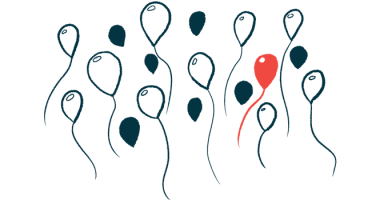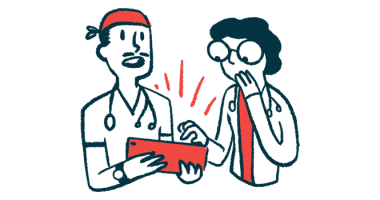Does My Rare Disease Make Me an Unreliable Friend?

I had a short-lived, yet severe, acute hepatic porphyria (AHP) attack in mid-September. Like a descending tornado, it came on fast, grew in intensity, and demolished everything in its path. Before surrendering to the funnel’s pull, I had to do something I both hate and dread: bail on loved ones at the last minute.
Our Friday night neighborhood hangout? Couldn’t do it. My grandma’s 97th birthday? Sadly, no. Autumn equinox brunch with girlfriends? Nope, I had to cancel.
With AHP, it’s hard to predict when symptoms will get severe. When I back out of plans, I feel unreliable. Worse, it confirms my fears of inadequacy as a friend. As someone who prioritizes relationships, canceling on the people I love plays into some of my biggest insecurities.
Social isolation is a major issue for people living with rare diseases like AHP. We may feel alone because our lives look so different from those around us. We may feel misunderstood because we don’t have anyone to talk to who shares our diagnosis. We may feel like we are disappointments to friends and family.
Not thinking straight
Recovery from a severe attack starts when I am no longer focused inward on survival. Typically, I’ll wake up one morning and notice my fiancé’s comforting form curled up next to me, or rays of sunshine streaming through a window.
Every bad episode I’ve endured has been followed by a profound moment of clarity, at which point I’ll realize with a jolt that while I lay in the hospital, my bed, and the shower, the world continued to turn. This is the calm after the storm. The danger has mostly passed, but I am in no shape to think about rebuilding.
Last weekend, I was lying out on my screened-in porch when that depressing, yet humbling, moment hit. I thought of my neighbors, my grandma, and my girlfriends. Before I could stop myself, I cruelly ticked off every activity I had missed and every human I had bailed on. Each was a blow to my worthiness as a friend. Worse still, I allowed these thoughts to confirm that I was, indeed, an unreliable person.
I decided I would never make plans again. (Never make big life decisions during a post-attack pity party.)
Days later, I began to regain my strength. Slowly, life became easier, and my guilt dissipated. I wanted to reach out to people again, check in, and tell them I missed them. Most of all, I wanted to plan for when I could see them again!
Perspectives from friends
Fortunately, everyone I bailed on during this recent attack knows me pretty well. It wasn’t the first time I’d canceled at the last minute, and it won’t be the last. But that’s not always the case.
Sometimes I barely know the person I’m flaking on. In those instances, I try to be honest and direct, without getting too detailed about the complexities of my disease. Luckily, people tend to be understanding of illness, particularly since the COVID-19 pandemic.
While writing this column, I decided to investigate perspectives from the other side. I asked a handful of my closest friends how it feels when their phones buzz with a text from me about being too sick to hang. Immediately, they shared what I inherently knew, but can only remember on my best days: They are never disappointed or annoyed. Those are stories I’ve told myself in a sick and slightly paranoid state.
Across the board, they agreed their initial response was one of concern. They know me, and they know I’d much prefer seeing them than feeling ill. One asked me to believe her when she says it’s OK. Two said they will never be upset about an unexpected free night in their otherwise overscheduled week.
I tend to attract people who share my boundaries and values. My closest friends understand that AHP is unpredictable, but they don’t let unexpected attack interruptions affect our friendship long-term. When I am feeling well, we can communicate openly about my disease, which is useful for the times they want to help and I’m too sick to text back.
Compassion is key
When I asked about my reliability, I never expected the response I received from one of my friends. She said she learns so much from how I prioritize my health. It’s inspired her to set boundaries with her work and family. At the end of the day, we have to put our bodies first. That doesn’t make us bad friends.
We often have to flake on the people we love when we feel our worst. But at my very core, I believe it’s better to cancel plans I’ve made than to not make any at all.
***
Note: Porphyria News is strictly a news and information website about the disease. It does not provide medical advice, diagnosis, or treatment. This content is not intended to be a substitute for professional medical advice, diagnosis, or treatment. Always seek the advice of your physician or other qualified health provider with any questions you may have regarding a medical condition. Never disregard professional medical advice or delay in seeking it because of something you have read on this website. The opinions expressed in this column are not those of Porphyria News or its parent company, BioNews, and are intended to spark discussion about issues pertaining to porphyria.








Comments
Carolyn S. Conner
I hope to finally find some answers!